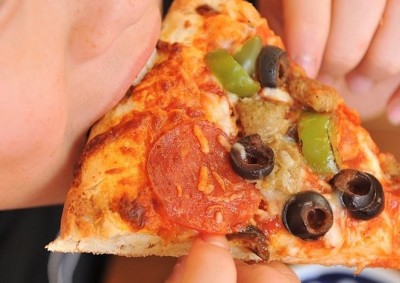There are certain foods we consider our favorites, and whenever hungry, we tend to gravitate towards them. But, there may be a few that we constantly crave, even when we are not particularly hungry. They lead to compulsive snacking. Recent studies have shown that some foods are as addictive as cocaine and tobacco. The reason: they stimulate the brain in the same way as these drugs do.
In a recent research project conducted on laboratory rats by Joseph Schroeder, a professor of psychology at Connecticut College, researchers found that the same brain centers in rats that are stimulated by cocaine are more readily stimulated by Oreo cookies. The rats in the experiment clearly favored the cookies over even increased amounts cocaine!
This may put the manufacturers of Oreo cookies in the defensive, but the real issue of food addiction may be more widespread and America’s “favorite” cookie is not the only place to point a finger.
The science of addiction
Certain substances stimulate the pleasure centers of the brain and trigger the production of dopamine, commonly called the happiness hormone. The brain craves for repetitions of these pleasurable sensations, leading to addiction. At the same time, repeated use of the stimulant substances reduces the sensitivity of the dopamine receptors. Now, more of the stimulating substance is needed to achieve the same level of “feel good” chemicals, increasing dependency.
Sugar, salt and fats, found in processed and fast foods, act as stimulants that activate these pleasure centers of the brain. Foods containing these additives in large amounts thus have an effect on the brain similar to drug-induced euphoria.
Manufacturers of processed food take advantage of the pleasure-inducing effects of these ingredients to make people consume more of their products. A major part of their R&D is focused on finding the optimum amounts of additives, including those to enhance color and flavor. Millions of dollars are spent annually by large manufacturers to pay scientists to figure out just what makes the human body crave more of a particular substance, all in an effort to get us “hooked.”
The difference between substance addiction and food addiction
Stimulants known to be addictive are non-essential, and are not normally consumed as part of the diet, with the exception of cocoa, coffee and tea. The use of tobacco, cocaine or similar substances is recognized as addictive and harmful habits, although addicts generally have a false sense of control.
Food addiction, on the other hand, is subtle, and difficult to recognize. The same food may be consumed by two individuals, but only one of them may be addicted to it.
New book reveals how to survive diabetes if all hell breaks loose.
The addictive nature of drugs is solely dependent on their biochemical reactions in the blood and the brain. The enjoyment of food has several associated sensory inputs such as taste, smell, texture, color, etc. that influences our choice. Their nutritional value, and ability to satiate hunger, may not be the first considerations.
The similarity between substance addiction and food addiction
Psychiatrist Mark Gold, doing extensive research on tobacco addiction and recovery at the University of Florida, found that people who quit tobacco often gained weight because they needed extra food to fill in the void left by the withdrawn stimulant. Also, the Journal of the American Medical Association published an interesting study conducted by the University of Pittsburgh on those who underwent gastric bypass surgery. While the surgical intervention reduced food consumption significantly and reduced obesity, it sometimes caused them to turn to alcohol, demonstrating the similarity between the craving for alcohol and food.
Nora Volkow, who later headed the National Institute on Drug Abuse, did PET scans on obese people, and found them lacking certain dopamine receptors, a condition similar to those addicted to drugs. The absence of these receptors reduced the inhibitory action of excess dopamine, and caused drug users to increase their intake. Similarly, it may induce overeating in obese people.
Another similarity between substance addiction and food addiction is that susceptibility varies between individuals. Most people drink moderate amounts of alcohol occasionally, but some become addicted more easily. Not everyone who eats a particular food has food addiction; only those who find it to be irresistible and experience frequent urges are addicted.
Consequences of food addiction
Obesity and related health problems such as diabetes, high blood pressure, and heart disease are the immediate effects of food addiction. It may undermine the individual’s efforts to lose weight, and may lead to low self-esteem.
When continued for longer periods, food addictions are known to permanently change brain circuitry. Moreover, if studies on mice were any indicator, the preference for high fat, high sugar diets could even be inheritable, if the mother has such tendencies during pregnancy.
Overcoming food addiction
There are many measures we can take as individuals to overcome food addiction:
1. Recognize food addiction and addictive foods.
Don’t rely on the government to recognize the reality of food addiction. The first step towards overcoming addiction of any sort is accepting the fact. Be aware of the foods you are addicted to.
2. Distinguish between staple foods and occasional treats
Every surviving culture has certain foods traditionally considered staple foods. Depending on geographical location and availability, there may be many differences in their staples, but they were all protein-rich or starch-based wholesome foods or food combinations. Fatty and sweet foods were rarely available on a regular basis, and were considered occasional treats.
With the advent of food processing, the line between staples and occasional treats has faded, and many high-calorie, high-fat and sugar-rich products like burgers, chips, cookies and doughnuts have replaced regular meals. Going back to traditional staples and home-cooked food is the solution. Consume treats sparingly.
3. List the false-fix foods
Food is often used as a false-fix for anxiety, depression and feelings of inadequacy. They eventually become so addictive that any emotional disturbance may find you heading towards the fridge. Make a list of the so-called comfort foods. It will help you stay clear of them.
4. Keep them out of sight
The adage “out of sight, out of mind” is very true when it comes to food cravings. The addictive mechanism of our brain attuned to high-fat and high-starch foods may have evolved as a survival measure during cycles of scarcity and plenty that our ancestors experienced. But now we are living in the age of perpetual abundance. Round-the-clock availability of convenience foods is the single biggest contributor to food addiction.
Stock your fridge with healthy, wholesome foods that wouldn’t tempt you unless you are really hungry. Throw out the foods that you recognize as addictive, and avoid “cue-induced wanting,” as former Food and Drug Administration head David Kessler calls the sight-triggered urge.
5. Replace them with healthier choices
Wholesome foods, which trigger the production of the hormone dopamine in a less addictive manner, can replace the troublemakers. Protein-rich foods like peanut butter, chick peas, tofu and cottage cheese can fill in for starchy foods. Good fats in avocado, olives, nuts, fish and sesame seeds produce the same satiety offered by unhealthy fatty foods.
Apple, pineapple or watermelon slices will help you overcome the craving for extra-sweet foods. If necessary, use mineral-rich coconut sugar or pure honey as sweeteners. Stevia in the raw form is a zero-calorie sweetener. While it tastes sweet in the mouth, it does not provide the body with the expected sugar rush. Thus it can gradually wean you from sugar craving
 Off The Grid News Better Ideas For Off The Grid Living
Off The Grid News Better Ideas For Off The Grid Living





